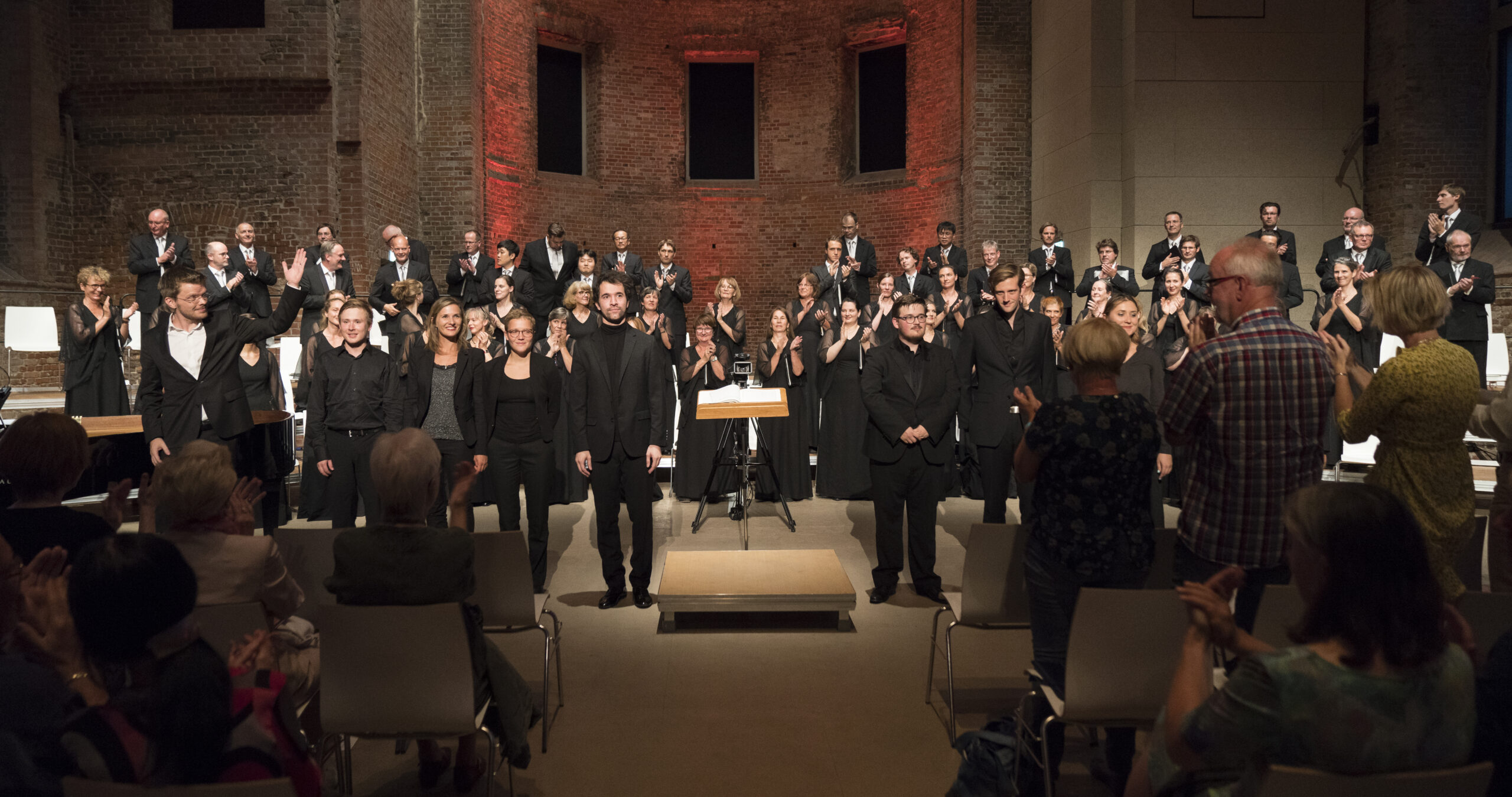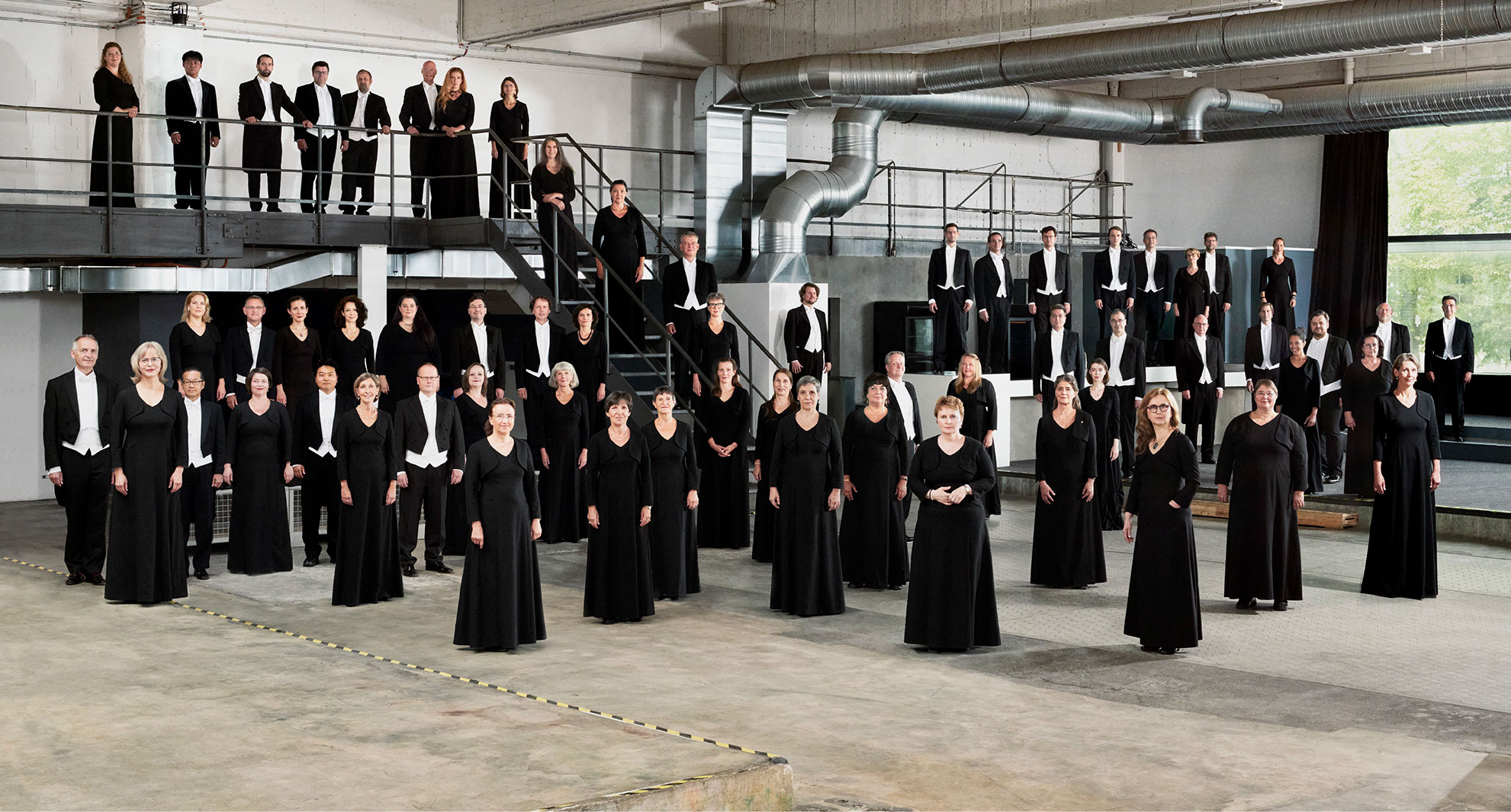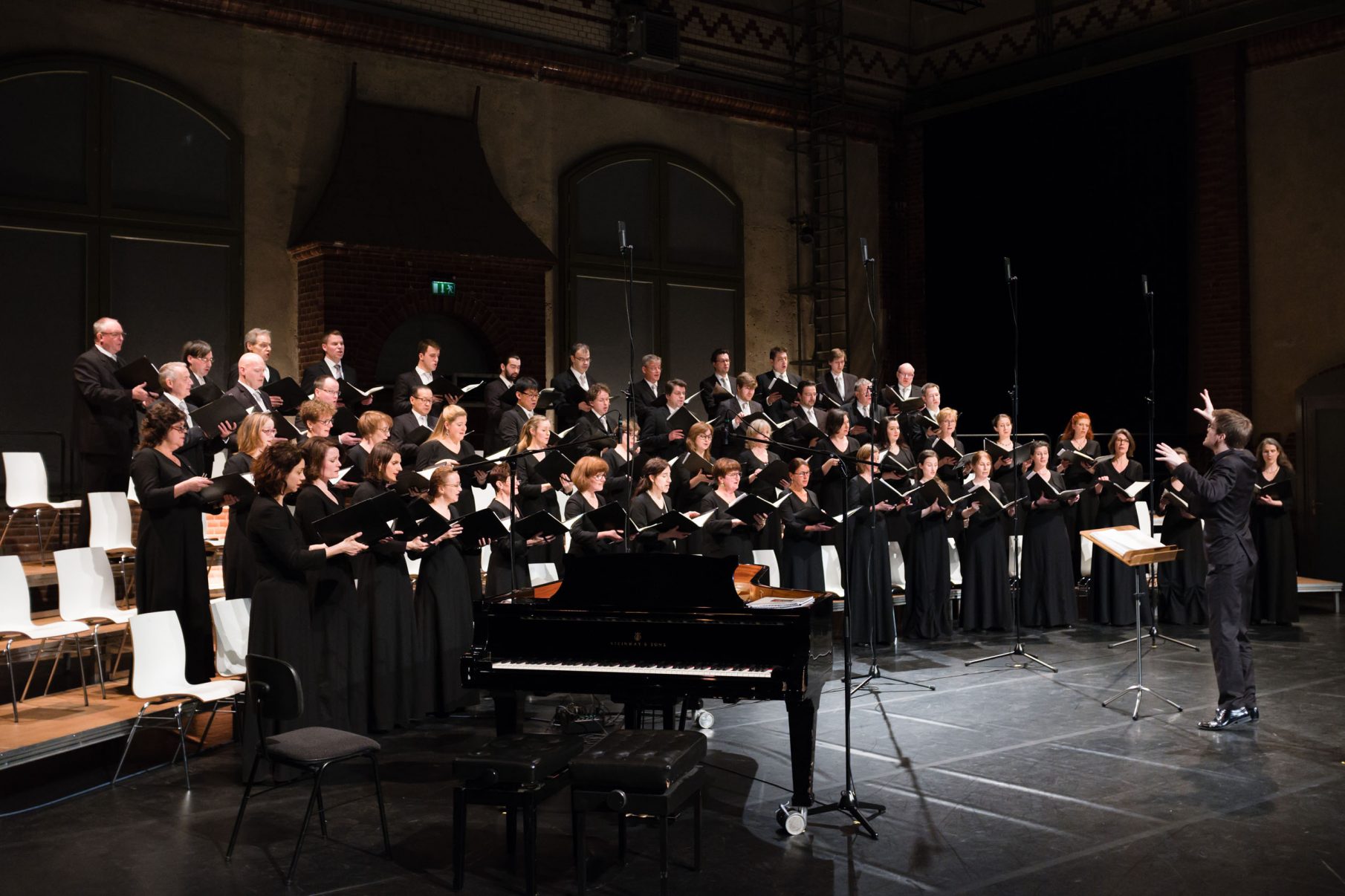Interviews
Interview with Principal Conductor Gijs Leenaars
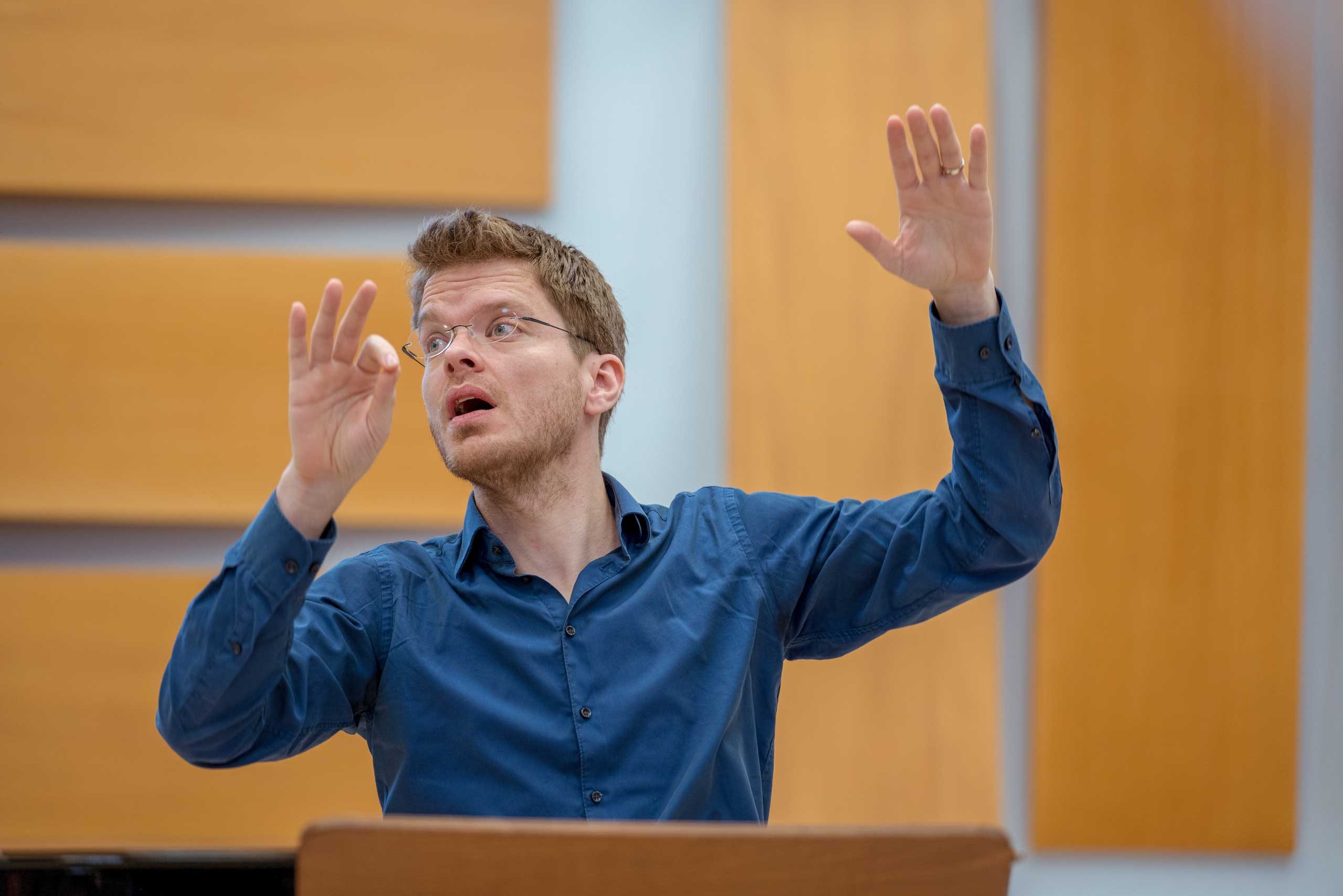
Now in his fourth season, our principal conductor Gijs Leenaars still has his hands full: he conducts the choir for both a cappella and symphonic choral concerts, in dramatic productions and on tour. In addition, he will be directing the choir’s studio CD recordings in 2018/19 and continues to plan the musical program for the three lounges in silent green Kulturquartier. In this interview he talks about his personal highlights in the 2018/19 season.
The 2018/19 season will be your fourth as principal conductor of the Rundfunkchor Berlin. What would you say after your experience to date: Was it a good idea to come to Berlin?
Yes! I still think it’s marvellous working with the choir. There is surely no other choir that does so many different things so well, being able to engage with such a wide repertoire and such different formats. One of the reasons why this works so well is that Berlin is such a fantastic cultural city.
The season begins with our International Masterclass for Choral Conducting. Is this project a prime concern of yours?
Absolutely – although it is certainly hard work. The days are long, and you have to observe not only the candidates but also the choir with immense concentration. And I need to watch myself as well, so that I understand what I tend to do in specific situations, and how. But that is the special aspect, too. I learnt a lot during the last masterclass – simply because you see things from a different perspective and think very hard, in a new way, about conducting and making music. I am really looking forward to the masterclass!
In October that is followed by another major project with Beethoven’s »Missa solemnis« in collaboration with the Kammerakademie Potsdam, which you will be conducting yourself.
It is a very difficult piece, but I believe all Beethoven’s later works are very intriguing – although there are sometimes three or four minutes when you might find things tricky. (He laughs.) I will try to approach the work from my background as a choral conductor. The choir sings the »Missa« regularly with some very good conductors, but they come from different worlds and have a different perspective to mine. The work is almost impossible to sing, and I believe that it may help in some places to approach it from the standpoint of a choral director.
Do you see yourself as a choral conductor or as a conductor who mainly conducts choirs?
The latter. I have always been very interested in voices, and I believe that’s where my strength lies. But I do have experience with orchestras, otherwise I wouldn’t be brave enough to tackle the »Missa solemnis«.
At the Christmas concert you are presenting a number of a cappella works again.
We will be singing Martinů, Janáček and other Slav composers that I really like. I think it’s wonderful to be able to assemble the program myself. And as principal conductor I can work very intensely with the choir. This is a different kind of work to choral symphonic pieces because the singing is different. Such projects are quite essential to choral work. And for our audience, the Christmas concert will include many enjoyable discoveries from the a capella repertoire.
Gallery
Gijs Leenaars rehearses with Rundfunkchor Berlin
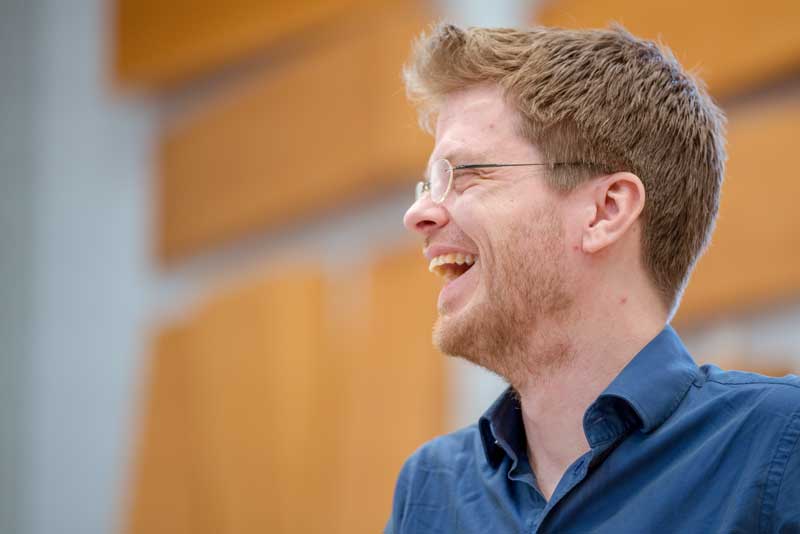
© Lovis Ostenrik
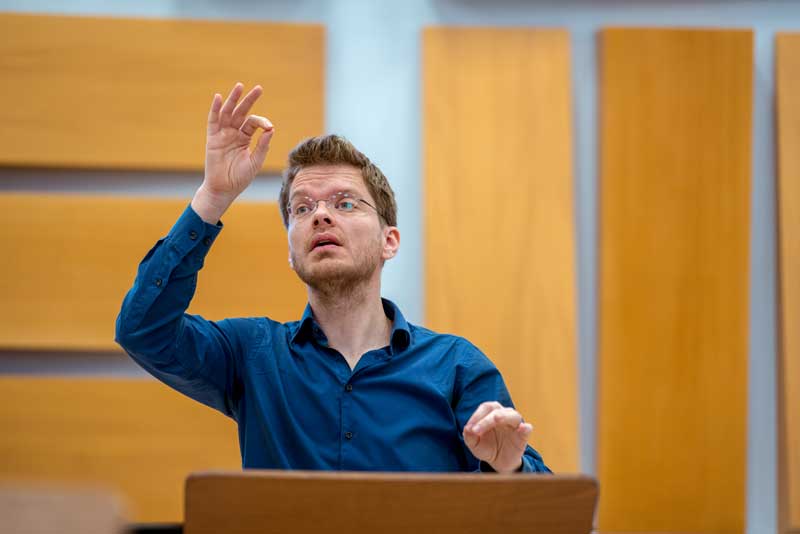
© Lovis Ostenrik
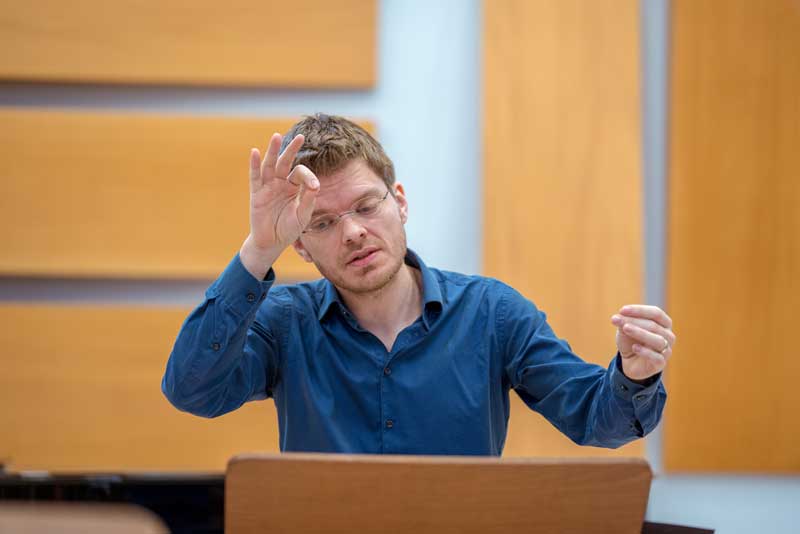
© Lovis Ostenrik

© Lovis Ostenrik
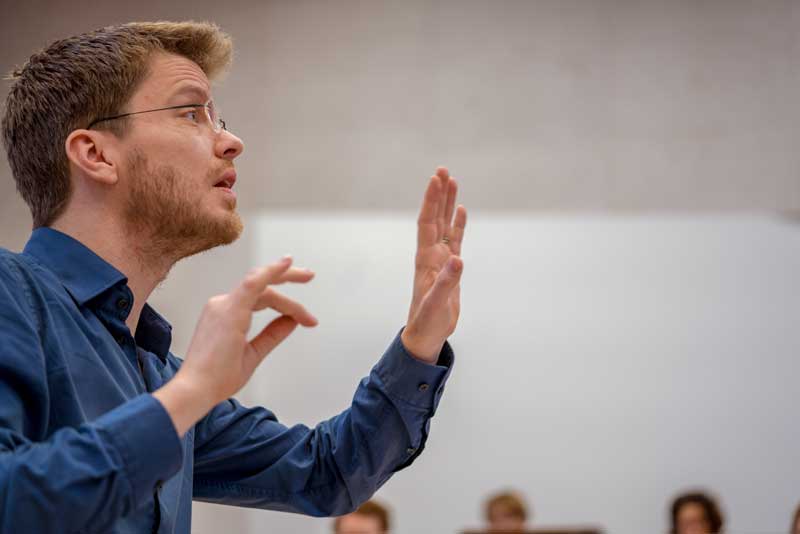
© Lovis Ostenrik
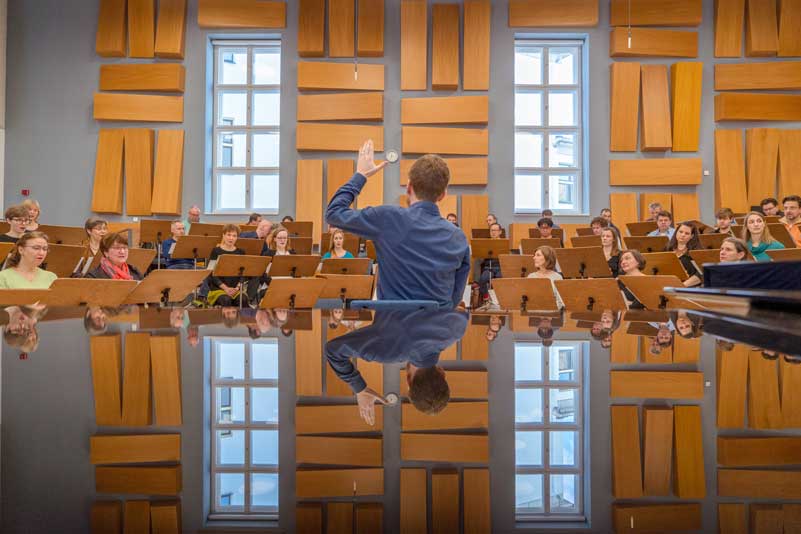
© Lovis Ostenrik
You will also be conducting the »human requiem« again in Berlin. Are you looking forward to that?
On the one hand, yes, of course! It’s incredible how the audience responds to the piece, how they open up to it – just like the singers, who show a lot of courage. And the audience allow themselves to be carried along, which is all great fun. On the other hand, in purely technical terms it is horrific for a conductor: it’s very complicated due to the space; you have to conduct the piece by heart, you have to watch out for everything coming together, depending on where the singers are standing. That is technically complicated and often, you also have to solve problems that are unconnected to the music, so that things work out musically. But the result is always worth the effort.
How about the RundfunkchorLounges in silent green? Do you feel relaxed during these informal evenings?
Yes, absolutely. On the one hand, because we get very close to the audience. On the other hand, because the RundfunkchorLounge allows me to select unusual music and to build bridges between different composers and various styles of music. It’s a lot of work conceiving an evening that functions as a whole and is well-staged. But I like to listen to things on YouTube, to develop ideas and find pieces that fit in with my theme.
On the one hand, as principal conductor you are very visible. On the other hand, when you are preparing the choir for a choral symphonic program you have to remain somewhat in the shadows. Is that a thankless aspect of your work?
No, I have never felt that way about it. By comparison to work with an orchestra, rehearsal work with a choir is far more important. You need to rehearse intensely so that you can really change things in a choir working at this high standard. If you don’t enjoy doing that, you’re in the wrong job anyway. I like conducting concerts a lot. But rehearsal work is also very fulfilling. And we enjoy the luxury of working together with some truly wonderful conductors – among the roc-orchestras but also with the Berlin Philharmonic.
As far as the program is concerned, can you always do as you wish?
There is always a limit somewhere, of course. But it doesn’t matter too much when it turns out to be impossible to realise an idea. The great thing is that our ensemble is trying all the time to discover new approaches. That’s also dependent on the management. Everyone is very passionate about their work and fired with enthusiasm for our projects. I feel I am in very good hands.
And what is special about the Rundfunkchor Berlin’s audience?
I believe we have an excellent audience. But the extent to which I am aware of it is very dependent on the concert format. In the RundfunkchorLounge and at our a cappella concerts, we get immediate feedback. In the Philharmonic we do notice how people are applauding when the choir stands up at the end, of course. But that’s rather different. Our audience is very diverse. Some people come because of the orchestra and regard the choir as an extra, while others are real choir freaks, who only come to hear us – and there is everything in-between, as well. I think it’s great that I don’t have to explain my work as a choral conductor as much here in Berlin as I had to before in Amsterdam. That has a lot to do with my predecessor for many years, Simon Halsey, and with those responsible, who have built up something really special here.
Is Berlin a good city in which to live and make classical music?
Both! Although I have to say, Utrecht was not bad, either. It is much smaller, more relaxed, greener, and I miss that sometimes. But that has nothing to do with my amazing job here.
And finally, the crucial question: Is the Rundfunkchor Berlin the best choir in the world?
Well, there is certainly no other choir I would prefer to work with at the moment. It is one of the world’s very best for choral symphonic work. And it is very versatile and flexible, which makes it a fantastic partner for any conductor.

